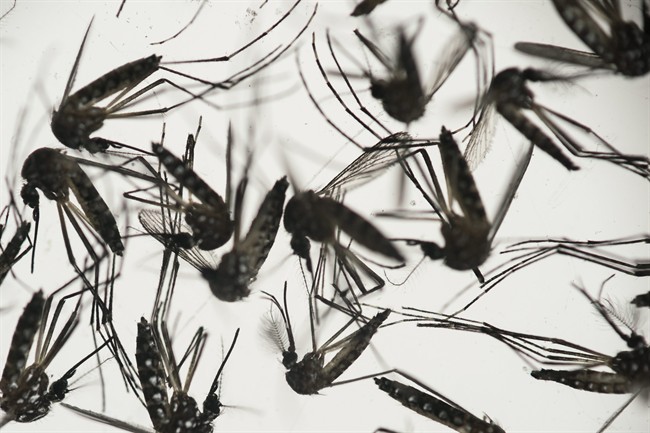Heading to Europe this summer? Zika virus is on its way too, the World Health Organization warned this week.

The world’s largest Zika virus outbreak has been contained to Brazil with cases scattered across Latin America and the Caribbean, but now health officials are warning the mosquito-borne virus is migrating to Europe.
“As seasonal temperatures begin to rise in Europe, two species of Aedes mosquito, which we know transmit the virus will begin to circulate,” WHO assistant director general, Marie-Paule Kieny, told a conference in Paris this week.
“The mosquito knows no borders,” she warned.
Like dengue, West Nile and yellow fever, Zika virus is a mosquito-borne tropical disease, meaning the insects transmit the disease to humans.
READ MORE: What doctors know about how Zika virus potentially spreads
You can catch Zika virus by getting bitten by an infected mosquito but scientists are working quickly to study transmission through contaminated blood, sexual intercourse and even from expectant mom to baby.
Cases of Zika have already been recorded in France, Portugal and Italy, but only through person-to-person transmission via sexual contact.
Canada reported its first case of sexually transmitted Zika virus on Tuesday.
In projections out last week, University of Washington and Oxford University scientists suggested that nearly two billion people could be in Zika virus zones.
Right now, nearly 300 million people are already living in the Americas, where the mosquitoes that carry the virus exist. The WHO has already warned that Zika will touch every part of the Americas, except for Canada and Chile.
- Solar eclipse eye damage: More than 160 cases reported in Ontario, Quebec
- 3 women diagnosed with HIV after ‘vampire facials’ at unlicensed U.S. spa
- ‘Super lice’ are becoming more resistant to chemical shampoos. What to use instead
- Canadian man dies during Texas Ironman event. His widow wants answers as to why
READ MORE: 5 things Canadians need to know about Zika virus
In North America, they’re projecting that most of Texas and all of Florida are “highly suitable” for Zika virus transmission.
See the full projections.
Health officials in El Salvador, Brazil, Jamaica, Ecuador, Honduras and Colombia told residents to delay pregnancy until as far ahead as 2018 so doctors can better understand whether the infection tampers with brain development in infants.
So far, Zika has been linked to a 20-fold increase in a rare defect called microcephaly in babies, which causes irregularly small heads and underdeveloped brains.
Researchers are piecing together how the disease seeps into an unborn baby’s developing brain and body.
carmen.chai@globalnews.ca
Follow @Carmen_Chai


Comments